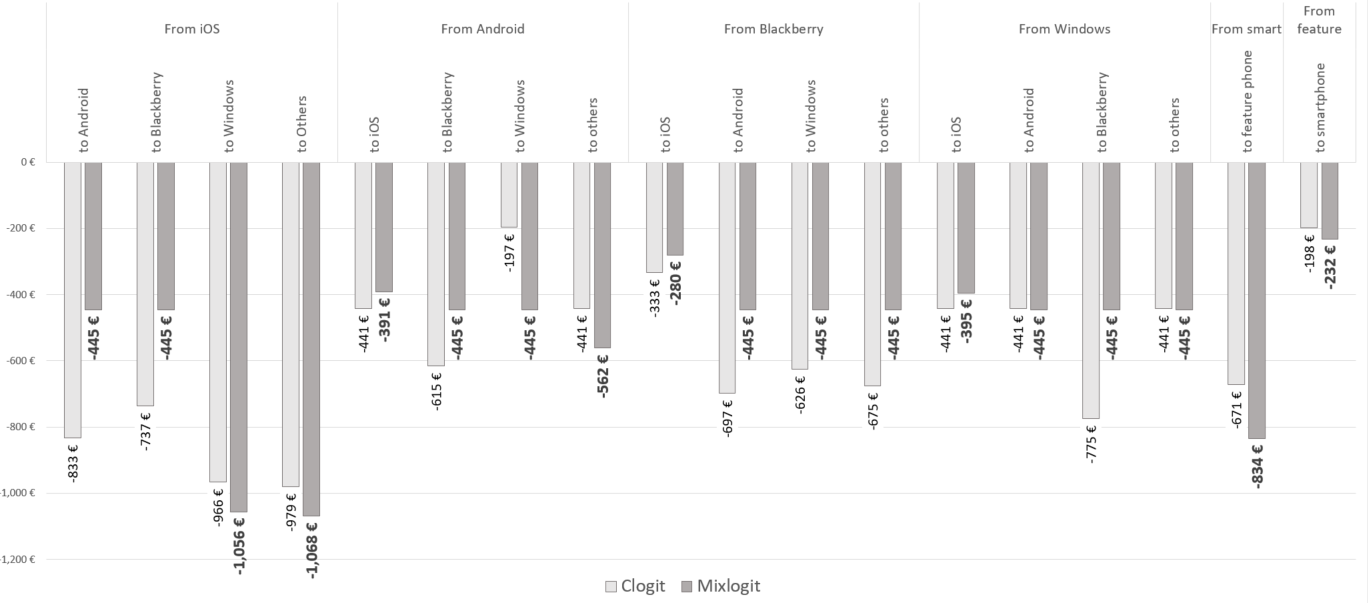Estimating Consumer Inertia in Repeated Choices of Smartphones
Estimating Consumer Inertia in Repeated Choices of Smartphones, joint with Lukasz Grzybowski.
Published in Journal of Industrial Economics, 69: 33-82. Full paper.
In this paper, we use a unique dataset on switching between mobile handsets from a sample of 9,799 subscribers using tariffs without handset subsidies from a single mobile operator; the data are captured on a monthly basis between July 2011 and December 2014. We estimate a discrete choice model in which we account for disutility from switching to different operating systems and handset brands and for unobserved time-persistent preferences for operating systems and brands. Our estimation results indicate the presence of significant inertia in the choice of operating systems and brands. We find that it is harder for consumers to switch from iOS to Android and other operating systems than from Android and other operating systems to iOS. Moreover, we find that there is significant time-persistent heterogeneity in preferences for different operating systems and brands, which also leads to state-dependent choices. We use our model to simulate market shares in the absence of switching costs and conclude that the market shares of Android and smaller operating systems would increase at the expense of the market share of iOS in such context. We also show that if Samsung launched its own operating system with the same value to consumers as Android, the vast majority of current Samsung users would continue with Samsung rather than switch to other manufacturers using Android.
